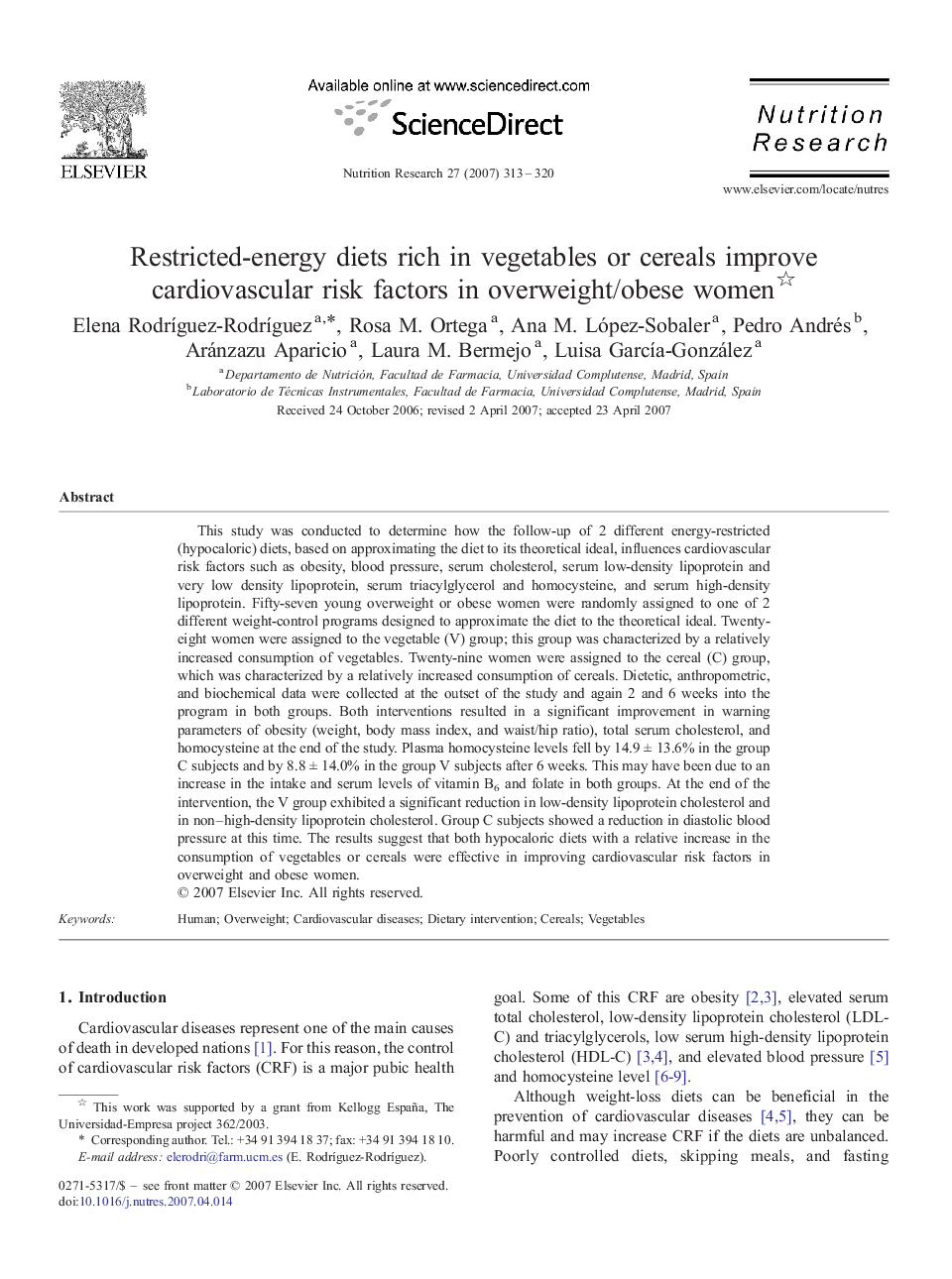| Article ID | Journal | Published Year | Pages | File Type |
|---|---|---|---|---|
| 2809793 | Nutrition Research | 2007 | 8 Pages |
This study was conducted to determine how the follow-up of 2 different energy-restricted (hypocaloric) diets, based on approximating the diet to its theoretical ideal, influences cardiovascular risk factors such as obesity, blood pressure, serum cholesterol, serum low-density lipoprotein and very low density lipoprotein, serum triacylglycerol and homocysteine, and serum high-density lipoprotein. Fifty-seven young overweight or obese women were randomly assigned to one of 2 different weight-control programs designed to approximate the diet to the theoretical ideal. Twenty-eight women were assigned to the vegetable (V) group; this group was characterized by a relatively increased consumption of vegetables. Twenty-nine women were assigned to the cereal (C) group, which was characterized by a relatively increased consumption of cereals. Dietetic, anthropometric, and biochemical data were collected at the outset of the study and again 2 and 6 weeks into the program in both groups. Both interventions resulted in a significant improvement in warning parameters of obesity (weight, body mass index, and waist/hip ratio), total serum cholesterol, and homocysteine at the end of the study. Plasma homocysteine levels fell by 14.9 ± 13.6% in the group C subjects and by 8.8 ± 14.0% in the group V subjects after 6 weeks. This may have been due to an increase in the intake and serum levels of vitamin B6 and folate in both groups. At the end of the intervention, the V group exhibited a significant reduction in low-density lipoprotein cholesterol and in non–high-density lipoprotein cholesterol. Group C subjects showed a reduction in diastolic blood pressure at this time. The results suggest that both hypocaloric diets with a relative increase in the consumption of vegetables or cereals were effective in improving cardiovascular risk factors in overweight and obese women.
